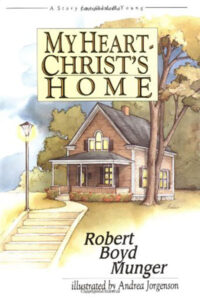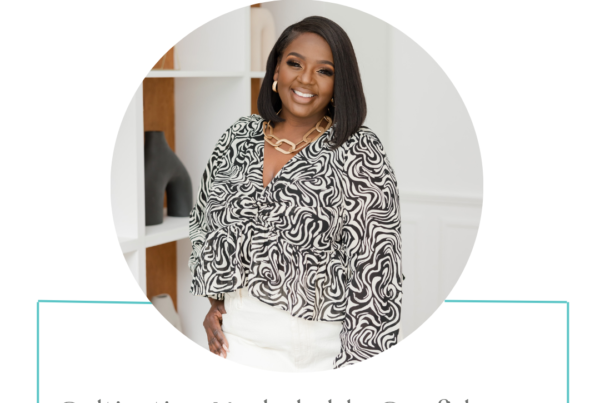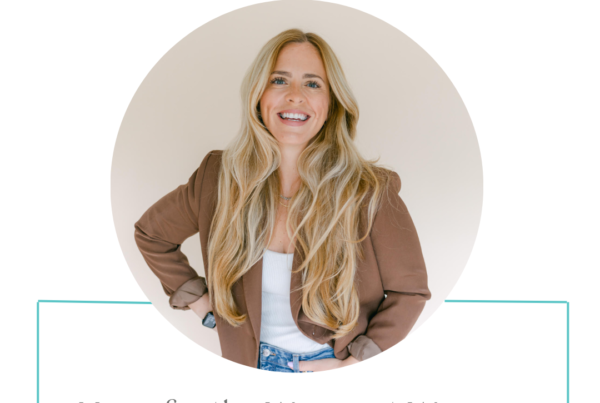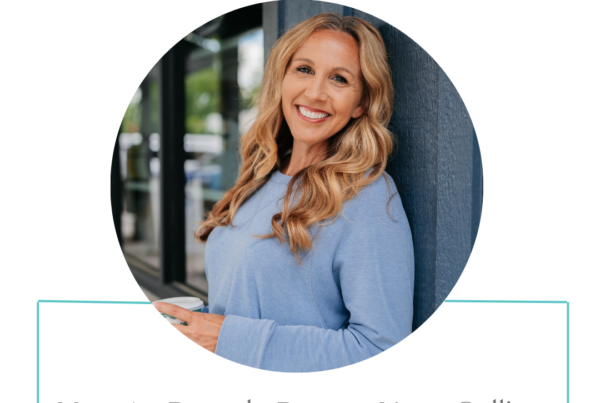Join us for a conversation about decluttering your inner life so you can live with more joy, freedom and wholeness. We talk with Trina McNeilly, author of “Unclutter Your Soul” and host of The Lovely Life. We discuss:
- Trina’s story of overcoming soul clutter and depression
- Overcoming trauma by making choices in our sphere of influence
- Partnership with the Holy Spirit on our healing
- Decluttering your soul so you can thrive
- The three O’s: observe, own, & overcome
- Cultivating a victor mentality
Join our community for encouragement and become a one-time or monthly supporter to make our ministry possible.
Get this episode’s show-notes.
Thank you for being a part of our community of girls and women where we inspire you to walk in your true value and identity and live the life you’re made for.
Visit our website, youtube, and subscribe to our podcast! Follow @wonderfullymade_org and your hosts @alliemariesmith and @christiecadence on Instagram for more encouragement.
—
Watch the episode here
Listen to the podcast here
Tidying Your Soul — With Trina McNeilly And Christie Myers
We’re so glad that you’re with us. We are going to talk about creating more spaciousness and decluttering the most important place that you dwell, and that is your soul. You’ve probably heard about Marie Kondo and The Life-Changing Magic of Tidying Up, which focuses on decluttering our homes.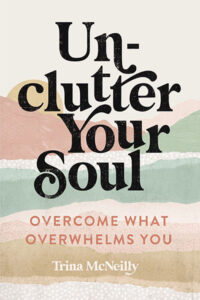
In this episode, we have speaker, podcaster, designer, and author, Trina McNeilly here with us to share insights from her book, Unclutter Your Soul: Overcome What Overwhelms You. This is part 1 of a 2-part episode. Trina is going to talk with us about how we can declutter our inner lives so that we can experience more spaciousness and peace.
—
Welcome, Trina.
Thank you so much for having me. I’m so excited to be here.
I was sharing with you before we hopped on. I’m so excited about this conversation. One thing I didn’t share with you is that I am very meticulous and tidy about my house. At the same time, I’ve realized my proclivity to the endless role of Instagram, busyness, and all these things. I’m excited to learn from you and for our audience to learn how we can create more spaciousness in the most important place that we have, which is our hearts. I was hoping you could start by sharing a little bit about yourself and why you’re passionate about this.
I’m Trina. I’m so glad to be here. I am a wife and a mom of four kids. I live outside of Nashville. I’m newly resident here by way of Chicago. I’m a writer. I always say writer because, book or notebook, I’m a writer. I’ve been in my journal since I was a kid and I’ll always write whether it’s published or not. I’m an author as well and been sharing online for many years and creating a community online.
It started by way of a blog called La La Lovely, which was a lifestyle blog. I’d share matters of the heart, a lot of design-related fines, and different lovely things. I still can’t get away from that. I don’t blog regularly, but I love to share beautiful things with people and help people notice beauty in their everyday life.
I’m very big on the health of our soul, which is what we’re going to get into because I love homes. Anybody that knows me in real life knows that I love home. I am a homebody. I like to decorate homes and the feel of home, so I look through the lens of home. I think it’s the way God has wired me. We have our homes, which we all work on declutter. We have what I call the living home, which is our internal life.
God says that he makes his home in our hearts and that he abides within us. It’s important to give attention to that living home so that space, God’s home, doesn’t become this cluttered and chaotic space. Maybe it already is, and that’s what we’ll talk about. What can we do about that? How can we make a home within ourselves livable, pleasant, and with peace?
I got up and this book came to mind, My Heart-Christ’s Home. Have you heard of it?
I haven’t, but I’m going to have to check it out. It sounds like it’s right up my alley.
It totally does. When I was younger, I had this wonderful school experience. One of our teachers introduced us to this book, My Heart-Christ’s Home. It talks about what you were saying, the home that we create in our hearts for Jesus. It talks about sorting through the room’s verse, the obvious messes, and then moving to the more hidden ones that are in the drawers. Of course, there’s the closet that nobody wants him to go into.
I’m all about that. I’m a person. I like to write essay style so I have a lot of chapters. Sometimes I forget the exact name, but it’s called, Don’t Forget the Boxes in the Basement. In this book, I do talk about different rooms or not shutting the door and the things that we hide in the closet, basement, crawlspace, or attic. God is interested in getting into every part of our hearts and soul.
With the progression of our conversation, before we get into the boxes in the basement, which I’m excited about that part, can you take us all the way back to defining internal clutter and soul clutter and maybe walk us through some of the different types?
The whole idea for me started originally as a blog post, and then it went into my first book. It was a chapter called Mental Clutter. It’s this idea of us being inundated with so much information and so many to-dos. Our brains are always going and they’re quite cluttered. It took me a while because that was almost my first book, but I knew I wasn’t ready or in a place where I had done the work to sort through.
As I sat with that thought and topic longer, I couldn’t leave it as something mental, so it morphed into soul clutter. The reason why is how I defined the soul in the book is not my original definition. I was taught when I was younger that your soul is your mind, your will, and your emotions. As I started to notice mental clutter, God began to point out, “There’s a lot going on here emotionally and a lot going on with your will as well.”
How I define it in the book is it can be a mix of things for different people. It might be the white noise of other people’s opinions or different stories that we tell ourselves. Maybe lies that we’ve agreed with or believed along the way, unregulated emotions or emotional pain. It can be things like anger, fear, grief, worry, anxiety, stress, or trauma. All those things that are weighing us down and cluttering up our inner life. I do think of it as boxes in the basement or storage bins. All the things that we’re holding onto and that are weighing on us is how I define soul clutter.

Soul Clutter: Soul clutter is the white noise of other people’s opinions. It is the different stories we tell ourselves or lies that we’ve agreed with or believed along the way.
I love how you said it’s going to be a little bit unique to each one of us. There are these common themes that all of us have. We’ll have a little bit of anger and fear and then there are different levels that each of us carries. Unique narratives and stories that each of us has. That is the soul clutter or the internal clutter.
Yeah, it is and it is going to be unique. I think there are some universal ones. In this day and age, there is stress. Stress is a part of life and there are different kinds. I talk about it in the book. There’s a whole chapter called Inventory Your Clutter. I give different types of soul clutter to help people identify and take inventory of what’s going on the inside of them, but it’s, of course, not a completely sufficient list.
A big part of this work is inviting the Holy Spirit to show and point out things that may be hidden and not revealed. I think stress is a great indicator. Everyday stress is what I was getting at, and then chronic stress. If you’re chronically feeling stressed about something, I wouldn’t necessarily define stress as a wound, but if you think of it on the body, you touch a wound, and you’re like, “Ouch.” It’s what’s causing that pain. Stress often indicates immediate soul clutter might be for you.
Can you unpack that for us a bit more? Maybe share the indicators you saw in your life that led you to do this work.
I don’t think anyone’s asked me that question before, and I could answer it quickly. I thought, “This is something I should have written about.” One indicator is stress like we talked about and overwhelm. The subtitle of the book is Overcome What Overwhelms You. Where are you feeling overwhelmed? Where is that stress or anxiety, and what are you anxious about?
Most people, according to statistics, now are dealing with anxiety at off-the-chart levels. What is it that you’re anxious about? I’m going to give two other ones. Avoidance. What am I avoiding in my life? That was an indicator for me. There are things that I would avoid. Sometimes I would be participating in life, but we might get into that a little further.
Look at numbing. What are you numbing in any way? When we hear that word, sometimes it’s easy to go all the way towards numbing with substances like alcohol or other things like that. It can be taken way too far. We can also numb with the scroll of Instagram. You get on, start scrolling, block everything out, and the next thing you know, an hour is gone.
We can do that with food or anything that comforts us, like watching Netflix. Some of these things are not bad things, but are we using them in an unhealthy way as a coping mechanism? Are you numbing, and what are you numbing? For me, a lot of times, that would be emotional pain. I would feel emotional pain, and then I have the glaze looking at Instagram.
Of course, what happens with that is you’re seeing which way you don’t feel you measure up or I called it specific algorithm towards your ache. Whatever you have an ache or angst about, it suddenly appears in your feed. Are you using those things? For me, I might be like, “I need to go get some ice cream.” Not that there’s anything wrong with ice cream, but it’s going to make me feel better. Not really, usually. I feel worse afterward. That can be a great indicator and a great way to look and see what the immediate soul clutter might be in your life.
Thank you for walking us through it. Probably most of us reading are like, “I love how you make the distinction.” There’s a difference between, “I have a show that I really enjoy watching at night and I watch an episode, have my tea, or whatever,” versus, “I can’t wait until the kids go to bed or my homework is done, so that I can literally binge-watch this show and numb out.”
That’s night after night. I can think back on the times in my life when I have done that. It usually is because I am experiencing overwhelm or pain. It’s interesting. It makes me think of this one night I was going on a walk. Part of my routine is I like to go on evening walks and I’ll listen to a podcast, pray, or listen to music.
I remember I was feeling really off, and I have been avoiding it. Toward the end of the walk, I put on a song and the tears came. I just cried and cried. I sat down on the bench outside and I sobbed my eyes out. I felt so much better. I’m like, “I wish I would have done this so much sooner. Maybe I didn’t have to spend the last three days feeling like a zombie.”
It just perpetuates when we do those things.
You talk about a process in your book, which is three O’s. The first one being Observe when it comes to how we deal with internal clutter. Can you walk us through this process and key in for us on why this observation piece is so important before we move to the next steps?
There can’t be any change in our lives until we know that there needs to be a change and until we’re ready to take a good look at what needs to change. We might even say, “I want to change,” but it’s more of a wish. When we are ready to change, then we’re going to be at a place where we are ready and available to take a good hard look at what is going on in our lives and what might be going wrong.
There cannot be any change in your life until you know that there is a need to change. Click To TweetI call it paying attention to your own life instead of numbing out to it or distracting it. This is the culture that we live in. It’s a very distracted one where many of us don’t take the time to sit in stillness and process things that are going on or to think about the things that we’re thinking about. Some of us are not aware that we’re not doing it. Some of us are intentionally avoiding paying attention to what’s going on the inside.
Observing is important because when we pay attention to what’s going on in our life, that actually precedes the change. When you know what needs to change, you can take that step to change. You have to take a good look, like when you’re going to declutter a home. You have to lay everything out. You alluded to the Marie Kondo way. If anyone watched her on Netflix, I am not so bold as to do the physical clutter this way. Literally, take everything out of the closet, every single thing. Go through each piece and see if you like it, if you need it, if it’s serving you, or if it’s just taking up space.
We have to do that on the inside too. Begin to pay attention. Sometimes, we’re so disconnected from the internal dialogue and what’s going on the inside of us because we’re so familiar with it. It’s like a constant background white noise. One of the best ways to begin to observe is by paying attention to your physical body. This happens to a lot of people. It happened for me. I’m a pretty self-aware person and I like to think as a writer. Observing is part of my life. I knew things were going on. I was paying attention, but I didn’t want to deal with things or know where to start.
What happens is if you don’t deal with it, then your body is going to begin to speak for you and act out. If you’re not dealing with stress or anxiety, it’s going to come out in very physical ways. Maybe you’re experiencing headaches or stomach aches. It can go as far as I’ve started getting hives and think, “Something is wrong with me.” Go to all the doctors and try to figure things out.
Try all these elimination diets, and then come to find out on an elimination diet, eating nothing. I encountered a stressful situation that I was going through at that time. Next thing, I’m itching a dog and my legs are red. I had that connection of, “This is related to stress and not necessarily to foods that I’m eating.” A good place to start is to also pay attention to your body and what it might be trying to tell you that you’re not listening on your own.
That’s so great. I’m just thinking about other ways that could manifest, too. There are two different types. There’s the, “This is because of my diet and this is actually a medical thing. I need to adjust the foods that I’m eating.” There’s your experience which was, “My body is so chalked up with stress that it’s now physically trying to eliminate the stress through my skin.”
It makes me also think about depression. There is clinical depression that requires medication for a season or for however long. There is depression that is more circumstantial. We are depressed because of some of the things happening in our lives. Even though it’s not maybe showing up on our skin, it’s showing up in our lives. We feel like we’re living in a fog. It’s interesting to think about that.
Bringing up depression, I write pretty candidly in the book about that. That’s something I have struggled with. Once I got into this process, and again, if you read the book or get a copy of it, you’ll hear me reference the Holy Spirit a lot because he was such an integral part of the process. He keeps revealing. In the Inventory Your Clutter chapter, I list out depression, but by it, I have sadness and melancholy because I had to really break that down too.
As you say, there are different types of depression, and that’s very true. There’s also sadness, which is a human emotion, and we all experience that. Me, I can be a bit of a melancholy type of person. I think it’s the creative artist in me. I like music that’s very emotive or movies that have a story that might be a little too unhappy for some people, but I can be drawn to that as an artist.
I had to observe. What is this in this time? Is this depression or just sadness? I don’t know how to self-regulate and deal with the emotion of sadness. Am I maybe listening or watching things that are evoking the melancholy in me, and it’s off-balance? That has been something that I’ve had to deal with in life over stressful times. I can’t even watch any kind of show that’s too dramatic or would make me anxious because it’s too much in my body right now and my soul. I have to guard my heart and mind. Anyways, that went off a little bit, but hopefully, that makes sense.
It does. It takes me back to that awareness and paying attention thing you’re talking about. What I’m taking from what you’re saying is when we pay attention to our feelings and our emotions, we can help ourselves a little bit as well. If I’m feeling sad in melancholy, it’s probably not going to help me to go and watch a tragic romance. I need to have a cup of tea and go for a walk.
Get some sunshine and some vitamin D.
Can you quickly walk us through the other O’s as well?
Yes. The next one is Own. Once we observe what’s going on and we see everything that we have to deal with, then comes owning, which is basically taking ownership. It’s taking responsibility. The thing about soul clutter is as you unpack it, a lot of people are going to be dealing with emotional pain, trauma, and things that were done to them as a child that you can’t escape away.

Soul Clutter: When you unpack soul clutter, expect to deal with emotional pain and trauma. Learn how to take responsibility to deal with things that hurt you.
You think, “How do I take responsibility for that?” Some things you can’t fully but what you can take responsibility for is how you want to deal with that hurt and that pain. If you want to be a powerful or powerless person, that was a big one for me. You have to take action for ownership. That’s where I think it’s important to implement the will.
Your mind, your will, and your emotions. The mind and the emotions like to be loud and bossy, and sometimes you have to evoke that will. For me, that came about when I was thinking about an old song that I sang growing up which I had always thought was a silly one. “This is the day that the Lord has made. I will rejoice and be glad in it.”
I was having a bad day dealing with depression, but I was singing it anyways. The Holy Spirit brought it up in my spirit. I was singing it and I was like, “I will rejoice. I will.” I kept saying I will and was like, “I can use my will here. I can make choices with my will. I can use that stubborn quality for something good.” We have to take ownership of what we’re dealing with and see how we can participate in the change in our lives.
Overcome is a pretty weighty word. I was a little hesitant to use that. The deal is that if we are believers, if we are in Christ, we already are overcomers. It’s not something that we’re going to do. It’s who we are. It’s getting a revelation of that, knowing that God has overcome and he lives on the inside of us. Overcoming is something that we do.
If we are in Christ, we are already overcomers. It is not just something that we will do. It is who we are. Click To TweetI always looked at it like this elusive arrival success story. They did this and that, but we don’t see all the steps to it, and maybe they did succeed at this or that, but another obstacle or another problem is going to come because this is life. We keep overcoming. It’s participation with the spirit. It’s how I like to look at it. When I got that perspective, everything began to change.
I also love how, in the dictionary, the word overcome is defined as overwhelm, which made me laugh because I’m like, “I’m using both of these words.” An example is, “She was overcome with joy. She was overcome with grief.” I also began to start thinking, what if we overcome our clutter by being overwhelmed with things like peace, joy, and the different fruits of the spirit where we think of lovely things and such? You can flip-flop it and look at it that way, but I just want people to understand that it’s participation with the spirit. It’s an ongoing process, and it’s who you are in Christ.
It’s so good. I love that you’re using the word participation because I think about the times when I’ve stayed stuck or when I’ve dug myself deeper into a hole. In one, I wasn’t owning my part. I was like, “I’m a victim. This person has done this to me.” There was also this abstinence, too. Participating with God board my healing.
That partnership that you’re talking about has been with Jesus Christ. What has saved my life, my internal life and my external life. You’re right. It’s a relationship. The people in the Bible are pleading, “We’re just dust. Help us.” God is like, “I get it. I understand. You don’t have to be so strong. I will do that for you.”
When Paul says, “When I’m weak, then I’m strong.” I want to bring it back to the point you made about our identity is that we are overcomers. That’s so powerful and it’s so freeing. I love what you said. Our part of overcoming, our identity of being overcomers, is actually participating with Jesus to be overcome by his love. It’s awesome. I just need to show up and be willing.
If you’re somebody that struggles with having a victim mindset, you are truly a victim, or self-pity creeps in. Nobody wants to talk about self-pity. I talk about it a little bit in there. I think it can actually be a coping mechanism, a familiar way we deal with things. If you’re looking to that, at least for me, I wanted to be rescued all the time whether it was a parent, my husband, friends, and even Jesus which he does rescue us. He rescues our spirits and we’re renewed and regenerated. We’re also children of God, and He’s training us to be children and to have our role in his kingdom. Looking to other people and be rescued all the time, I had to get this awareness of nobody can save your life except for Jesus and yourself. You have to participate in that change.

Soul Clutter: Nobody can save your life except for Jesus and yourself. You have to participate in that change.
He saves your spirit. He saves you, but then you work together on the renewing of the mind and participate. That helped me a lot to realize that nobody is coming to save me and make things easier for me. Jesus has already saved me, and I have to work on these changes myself. It’s a process. You observe it, you make the decision, but you just keep working on the process. As you find freedom in a certain area, you’re probably going to need to find freedom in another area. Sometimes, in quick ways, I can go through, observe, own, and overcome. Other times, I have to walk through the process. It’s one that I truly keep returning to in my personal life.
Two verses came to mind as you were sharing. First, let me start out by saying this. You made a good point. There are ways that most of us have actually been victimized. That is a sliding scale. If you’re reading and you have been victimized in tragic ways, that is legitimate and it is valid. This is not a message of pull yourself up by your bootstraps.
I’m thinking back to my own life as a child and some of the painful things that happened. There comes a point in our life where we have to realize that we have the opportunity to decide not what has happened to us in the past but what we are going to do now moving forward. There is a whole healing process with these two verses I want to share.
One is this. “God is not a man, that he should lie, nor a son of man, that he should change his mind.” That was so important to me because I had to get over this thing of, “Somebody is going to come to rescue me from this.” Nobody was coming except for Jesus to rescue me from the stuff I needed to be rescued from. The next one. “Do not put your trust in princes and mighty men who cannot save.” I was always looking for the romance movie Disney princess ending of I’m going to be swept away. It never came. I will tell you, I’m married now and it still doesn’t exist. Bringing it back, Trina. For women who are reading who are intrigued like, “I want to begin this process,” what’s one tangible step that each of us takes now to move towards this?
To piggyback on what we’re talking about, I totally agree with everything that you just said, I want to add how gentle and kind the Holy Spirit is. If you have dealt with abuse of any kind, God is not telling you to pull your bootstraps up. He’s there sitting with you in your pain and wants to heal you of your pain. He’s so kind and so gracious.
I’d say the one step I would encourage women to take is to begin to look for choices. That was a big part for me when I was dealing with some emotional abuse and other difficult things. Life is getting turned upside down and losing a home. It’s different things that I felt I had no control over. I felt completely powerless and no control. I can’t change anything. What a pity party the whole works.
I had no choice and I felt very stuck. I’ll never forget I was on a walk out in the woods on the street behind my house that I had walked since I was a little girl. God pointed out to me and asked me what choice do I have. It reminded me of the verse in the Bible that says, “I’ve put before you life and death. Choose life.” I thought, “If I can choose life, I can make small choices.”
I’m going to take a shower now instead of staying on the couch and feeling bad about these things. I started to look for little basic choices. I’m going to read my Bible. I’m going to say yes to going to lunch with a friend when I wanted to hide an introvert because I was going through such a hard time. It’s little choices. Begin to look for the choices, even if they’re so small, like taking a walk, taking a shower, reading a verse in the Bible, or getting a little bit of sunshine. Look for the choices because they’re there, and God is going to help you grow in making more choices.
Look for the little choices, like taking a walk, going for a shower, or reading a verse in the Bible. God will help you grow in making more of those choices. Click To TweetI love that. Look for the choices. Beautiful. Thank you so much, Trina.
Important Links
- The Life-Changing Magic of Tidying Up
- Trina McNeilly
- Unclutter Your Soul: Overcome What Overwhelms You
- Marie Kondo
- La La Lovely
- My Heart-Christ’s Home
- https://Smile.Amazon.com/Unclutter-Your-Soul-Overcome-Overwhelms/dp/078525000X/ref=sr_1_1?crid=1PVVPM61C9TYO&keywords=declutter+your+soul&qid=1671559413&sprefix=declutter+your+soul%2Caps%2C158&sr=8-1
- YouTube – Wonderfully Made
- @WonderfullyMade_org on Instagram
- @AllieMarieSmith on Instagram
- @ChristieCadence on Instagram
About Trina McNeilly
 Trina McNeilly is the author and founder of La La Lovely, where she has been writing and building community online for thirteen years, sharing matters of the heart and design-related finds. With an eye for beauty, Trina finds inspiration in styled spaces, broken places, and everywhere in between. Through soulful writing, in the voice of a trusted friend, she guides others to find joy and goodness in their everyday lives. Her work also includes creative direction, styling, and design projects. Trina is a new resident of Nashville, Tennessee, where she lives with her husband and their four children.
Trina McNeilly is the author and founder of La La Lovely, where she has been writing and building community online for thirteen years, sharing matters of the heart and design-related finds. With an eye for beauty, Trina finds inspiration in styled spaces, broken places, and everywhere in between. Through soulful writing, in the voice of a trusted friend, she guides others to find joy and goodness in their everyday lives. Her work also includes creative direction, styling, and design projects. Trina is a new resident of Nashville, Tennessee, where she lives with her husband and their four children.

